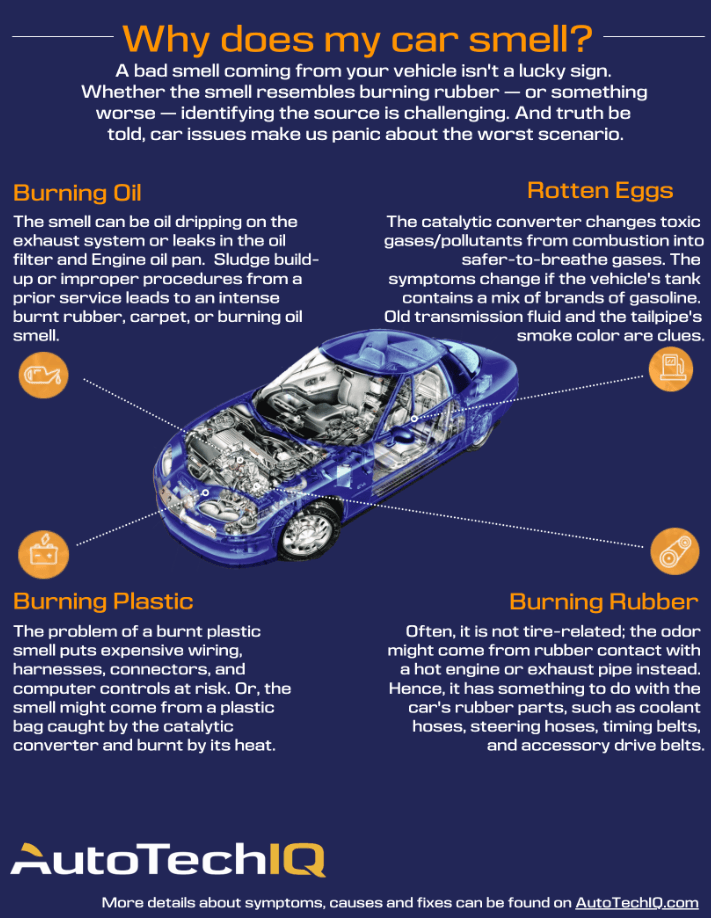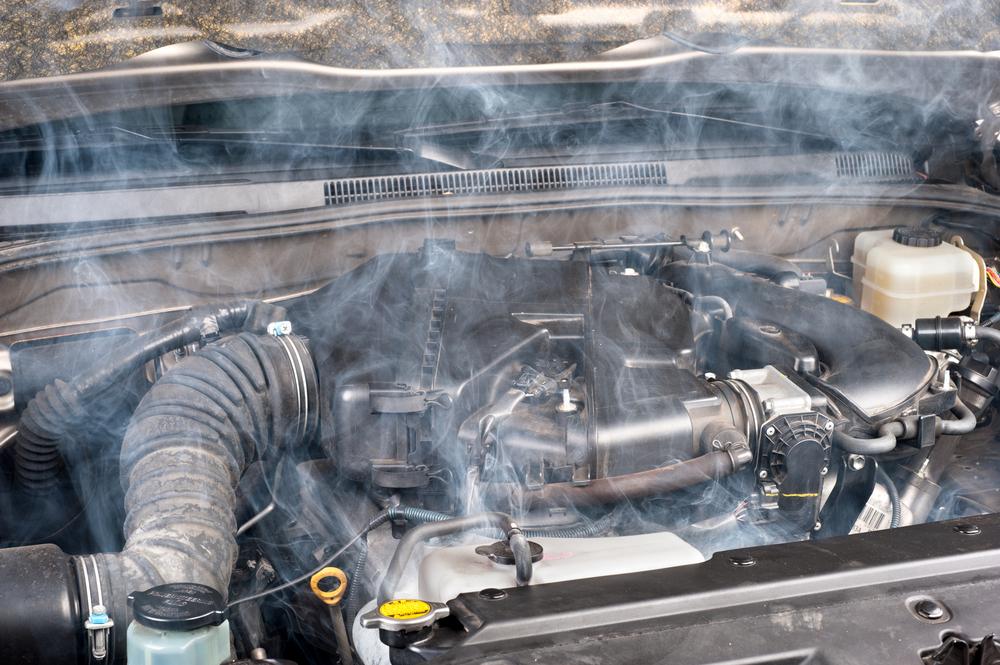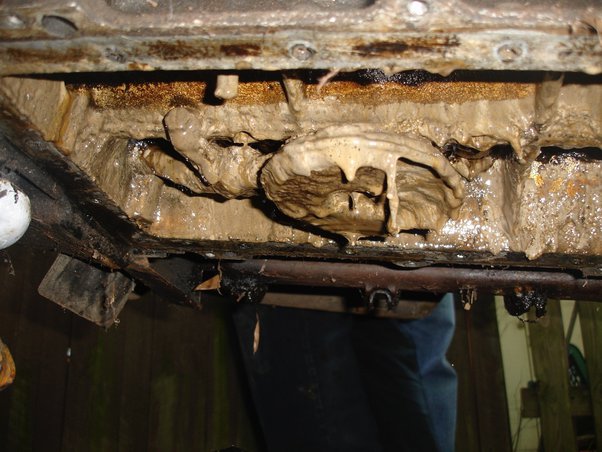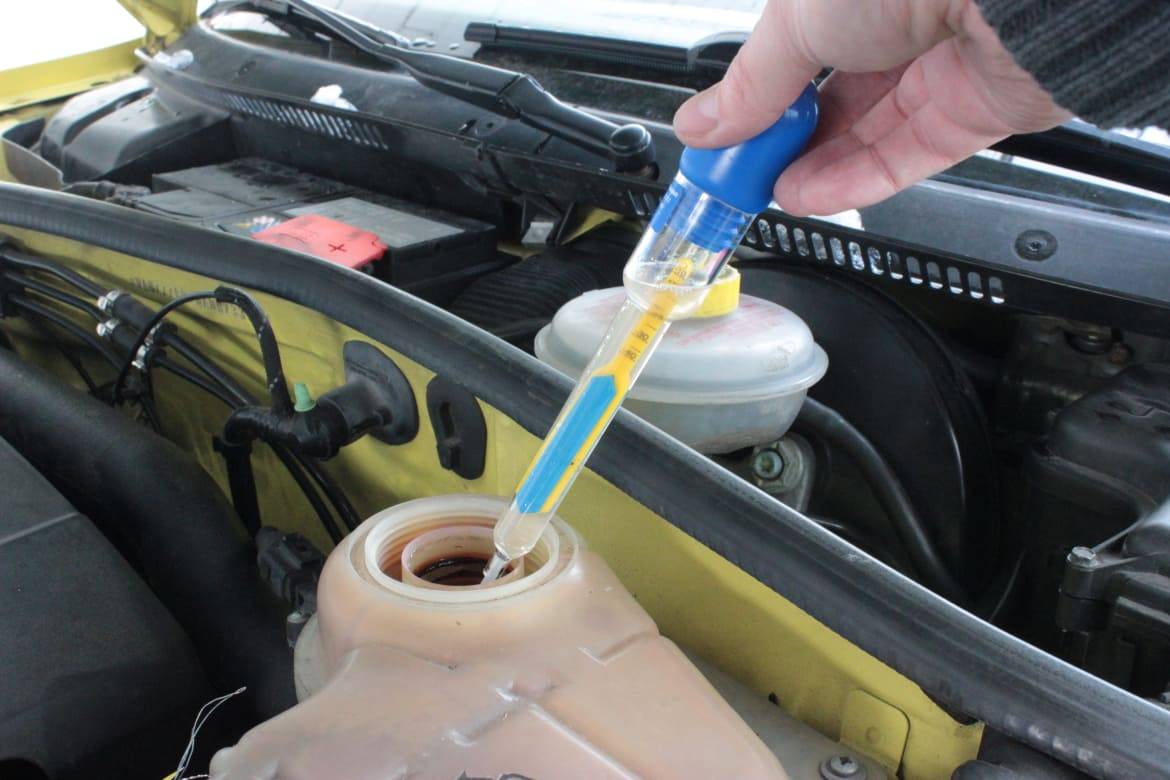Can a Bad Exhaust Cause Transmission Problems
A bad exhaust system can indirectly lead to transmission problems. Exhaust blockages may cause engine performance issues that strain the transmission.
Vehicle maintenance plays a crucial role in ensuring the longevity and performance of your car. The exhaust system, often overlooked, does more than just expel gases from your car. It’s essential for the proper functioning of your vehicle’s engine, and indirectly, its transmission.
A malfunctioning exhaust can cause increased back pressure which might not only decrease engine efficiency but also add extra load on the transmission. This extra stress can accelerate wear and tear on transmission components, potentially leading to premature failure. Car owners should be attentive to their exhaust system’s condition to prevent a cascade of mechanical issues that could affect the transmission and overall vehicle health. Regular checks and timely repairs are key to avoiding costly breakdowns and ensuring your car runs smoothly.
The Interconnection Between Exhaust And Transmission Systems
Most drivers know that cars have exhaust and transmission systems. These systems do different jobs. Yet, they can affect each other. Problems in the exhaust system can lead to issues with the transmission. Understanding each system can show how this happens.
Basics Of Automotive Exhaust Systems
An exhaust system takes waste from the engine and sends it out the back. It reduces noise and pollution. The key parts are:
- Muffler: Lowers sound from exhaust gases leaving.
- Catalytic Converter: Cuts down harmful gases into less harmful ones.
- Exhaust Pipes: Move gases through system.
- Exhaust Manifold: Collects gases from engine cylinders.
Problems like clogs or leaks in these parts can cause backpressure. This is pressure pushing back into the engine. It makes the engine and transmission work harder. This strain can lead to transmission problems.
Transmission System Fundamentals
The transmission moves power from the engine to the wheels. It controls speed and torque. When the transmission has issues, the car might not drive well. Common parts include:
- Gearbox: Holds gears for different speeds.
- Torque Converter: Connects engine to gearbox in automatics.
- Clutch: Connects and disconnects engine power in manuals.
If the exhaust system is not working right, it can make the transmission heat up. More heat can make the transmission break down faster. Also, too much backpressure can cause the engine to stall. If the engine stalls, the transmission stops too.
By keeping both systems in good shape, your car runs better. Fixing exhaust issues early stops bigger problems with the transmission. Regular checks can save time and money.
Symptoms Of Exhaust System Issues
An essential part of vehicle maintenance involves monitoring the exhaust system. This plays a critical role in your car’s overall health and performance. Identifying signs of a faulty exhaust is vital. It can prevent more severe problems like transmission issues. Here are key symptoms to keep an eye on:
Unusual Engine Noises
When the exhaust system fails, it often triggers noises from the engine that are hard to ignore. These noises can range from loud rumbling sounds to a noticeable rattle. Such irregular sounds should raise an immediate red flag. They might hint at a leak or blockage in the exhaust system. Pay close attention to changes in the sound emanating from your vehicle. It could save you from costly repairs down the road.
Decreased Fuel Efficiency
If you notice your vehicle is consuming more fuel than usual, it could be a sign of an exhaust problem. The engine might be working harder to compensate for a restriction in the exhaust system. This leads to increased fuel consumption. Keep track of your car’s fuel efficiency. A sudden change can help catch issues before they escalate.
Visible Exhaust Emissions
Excessive smoke or unusual emissions from the exhaust pipe are clear indicators that something’s not right. A healthy car should emit a faint, clear exhaust. Variations in the color or amount of smoke can signal significant issues. Take note, especially if the smoke is black, white, or blue. Each color suggests different potential problems needing immediate attention. Don’t delay in having your vehicle checked by a professional.
Identifying exhaust system problems early can prevent more serious issues like transmission malfunctions. A vigilant eye on these symptoms ensures your vehicle remains in peak condition. It also guarantees your safety and that of others on the road.
Transmission Troubles Stemming From Exhaust Problems
Your vehicle’s transmission and exhaust system seem distinct. Surprisingly, issues in your exhaust can hurt transmission performance. Let’s explore.
Restricted Exhaust Flow Impact On Engine Performance
A blocked exhaust restricts engine ‘breathing.’ It strains the engine. More strain means more work for the transmission. Here’s why:
- Exhaust backpressure increases.
- It leads to poor fuel economy and power loss.
- Transmission shifts harder, wearing it out faster.
Exhaust Leaks And Transmission Overheating
An exhaust leak near the transmission can cause major problems. Heat from the leak can:
| Effect | Result |
|---|---|
| Raise temperature | Damaging transmission fluid |
| Overheat parts | Warping and weakening them |
Avoid costly repairs with timely exhaust system checks.

Credit: www.autotechiq.com
Diagnosing The Root Cause Of Automotive Issues
When a car behaves strangely, understanding the problem is crucial. A bad exhaust can affect other parts, like the transmission. Correct diagnostics can save time and money. Let us explore the tools and methods used to find these issues.
Tools For Diagnosing Exhaust And Transmission Problems
Finding the cause of car troubles requires the right tools. Here are some essential ones:
- OBD-II Scanner: Reads car error codes.
- Vacuum Gauge: Checks exhaust flow.
- Pressure Tester: Finds exhaust leaks.
- Transmission Fluid Dipstick: Inspects fluid quality and level.
- Stethoscope: Listens for unusual noises.
Professional Versus Diy Diagnostics
| Professional Diagnostics | DIY Diagnostics |
|---|---|
| Use advanced tools | Limited to basic tools |
| Comprehensive analysis | Best for simple checks |
| Quick and accurate | May require more time |
| Performed by experts | Done by car owner |
Deciding between a professional or a DIY approach depends on skill level and the complexity of the problem. For simple tasks, a DIY fix can work. Complex issues often need a mechanic’s expertise.
Repair And Prevention Strategies
Understanding the link between a troubled exhaust system and potential transmission issues is crucial for vehicle maintenance. A bad exhaust system can cause undue pressure on the engine, which in turn affects the transmission. Addressing problems early and following effective strategies can prevent costly repairs.
Fixing Common Exhaust System Problems
To keep your car running smoothly, tackle exhaust issues swiftly with these steps:
- Inspect the exhaust system regularly for rust or holes.
- Ensure clamps and hangers are secure and intact.
- Replace the oxygen sensor if your vehicle crosses 100,000 miles.
- Get a professional to check for and seal any leaks.
Addressing these items can reduce the stress on your car’s transmission. A healthy exhaust system aids in proper engine function and transmission fluidity.
Maintaining Your Transmission Health
Maintaining transmission health extends vehicle lifespan. Adopt these habits:
- Change transmission fluid as recommended by your manufacturer.
- Use the correct type of transmission fluid – variances can lead to damage.
- Avoid towing heavy loads that exceed your vehicle’s towing capacity.
- Service your vehicle regularly to ensure all systems, including the transmission, are functioning well.
Preventive care keeps your transmission in optimal condition and minimizes the risk of exhaust-related problems.
Expert Insights On Exhaust-transmission Dynamics
Many car owners wonder if exhaust problems can lead to transmission issues. The truth may surprise you. Let’s explore the connection between exhaust systems and transmission health from an expert point of view. Clear signs point to how one system’s malfunction can impact the other.
Mechanic’s Perspective On Linkages
Experienced mechanics look beyond the obvious when diagnosing car troubles. An exhaust leak or blockage can have a ripple effect. It could impact backpressure and engine performance, which in turn may stress the transmission.
- Heat damage from a faulty exhaust can weaken transmission seals.
- Computer systems confuse engine issues for transmission glitches.
- Vibration and misalignment due to an exhaust problem can mimic transmission symptoms.
Case Studies Of Resolved Issues
Cases have shown that repairing an exhaust issue solved unpredicted transmission problems. Here are a few examples:
| Car Model | Exhaust Issue | Transmission Symptom | Resolution |
|---|---|---|---|
| Honda Accord | Cracked Manifold | Shifting Delays | Manifold Replacement |
| Ford F-150 | Blocked Catalytic Converter | Power Loss | Catalytic Converter Cleaned |
| Chevrolet Cruze | Leaking Exhaust Pipe | Erratic Shifting | Exhaust Pipe Repair |
These examples highlight the importance of considering the exhaust system when facing transmission issues. Early recognition and repair are vital for preventing further damage.
Frequently Asked Questions Of Can A Bad Exhaust Cause Transmission Problems
Can A Faulty Exhaust Affect Transmission Health?
A defective exhaust system can indirectly impact transmission function. Restricted exhaust flow can cause increased engine backpressure. This may alter transmission shifting patterns and lead to overheating, potentially damaging transmission components over time.
How Does An Exhaust Leak Influence Transmission Performance?
An exhaust leak near the transmission can mislead sensor readings. These incorrect signals can cause the transmission to change gears improperly, leading to erratic shifting and potential long-term damage if not addressed promptly.
What Are Signs Of Exhaust-related Transmission Issues?
Symptoms include rough or delayed shifting, unexplained transmission noises, and a noticeable decrease in fuel efficiency. These may accompany common signs of exhaust problems like louder engine noise or a sulfur smell.
Can Repairing An Exhaust System Fix Transmission Problems?
If transmission issues stem from exhaust system malfunctions, repairing the exhaust might resolve them. Always consult a professional technician as it could be a symptom of a deeper problem within the transmission system.
Conclusion
To wrap up, a failing exhaust system can indeed impact your transmission’s health. Routine checks are essential to prevent this cascade of vehicular issues. Address exhaust problems promptly; your transmission will thank you. Keep these systems in harmony for a smoother, more reliable ride.







